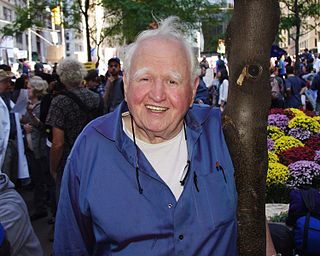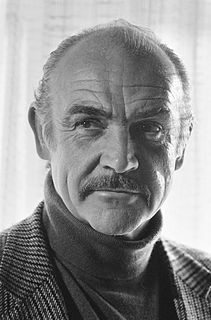A Quote by Malachy McCourt
I failed everything in school. I left when I was 13 because I had no comprehension of what the hell they were talking about up there at the blackboard. I must have that ADD thing. But, listening to people I thought, that's wonderful to be able to tell a story.
Related Quotes
The thing I always guard against when I'm talking to people I'm working with about a script is that there's a thing I don't like and it's called "talk story." It's when you're talking about the story; the characters are tasked with talking about the story instead of allowing the audience to experience the story.
First I went to a Jewish school, when I was very little. But when I was 12, they put me in a school with a lot of traditions, and they were educated people and they were talking about Greece and the Parthenon and I don't know what. All the kids, all the girls they had already seen that and knew that from their family, and I would say, "What are you talking about, what's that?" It's not my world. My grandparents were very well-educated people, but in the Jewish tradition. They knew everything about the Bible.
We see many persons talking the most wonderfully fine things about charity and about equality and the rights of other people and all that, but it is only in theory. I was so fortunate as to find one who was able to carry theory into practice. He had the most wonderful faculty of carrying everything into practice which he thought was right.
As far as change, anyone from the age of 13 to 19, you become a whole new person because you grow up. There was so much that I didn't know or that I thought I knew because I was just a 13-year-old at the time who thought I knew everything. But I realized very quickly that, no, there's so much about everything that I don't. So what I've at least tried to do is accept that I don't know everything. Life is so much more fun that way. And it's easier. I've just been trying to learn, rather than to pretend that I'm perfect.
My parents sent me to a school across town, an integrated school, where I had the chance to meet and grow up with people who were from other parts of the world. ... I remember feeling that I would never have anything to contribute on St. Patrick's Day. I couldn't tell the stories that they might have been telling about their forebears and I felt left out.
I was so sentimental about you I'd break any one's heart for you. My, I was a damned fool. I broke my own heart, too. It's broken and gone. Everything I believe in and everything I cared about I left for you because you were so wonderful and you loved me so much that love was all that mattered. Love was the greatest thing, wasn't it?
One of my patients told me that when she tried to tell her story people often interrupted her to tell her that they once had something just like that happen to them. Subtly her pain became a story about themselves. Eventually she stopped talking to most people. It was just too lonely. We connect through listening. When we interrupt what someone is saying to let them know that we understand, we move the focus of attention to ourselves. When we listen, they know we care. Many people with cancer talk about the relief of having someone just listen.
Resolution Trust Company was set up to liquidate a bunch of assets that the government had inherited because the savings and loans went broke. So the savings and loans went broke, the government stepped in, paid off depositors, and now they're left with this mass of assets to sell. We're not talking about selling here, we're talking about buying intelligently. They were selling what they got handed to them by a bunch of savings and loan operators that had in many cases had done some very dumb thing. But their job was to liquidate it. And they liquidated.




































